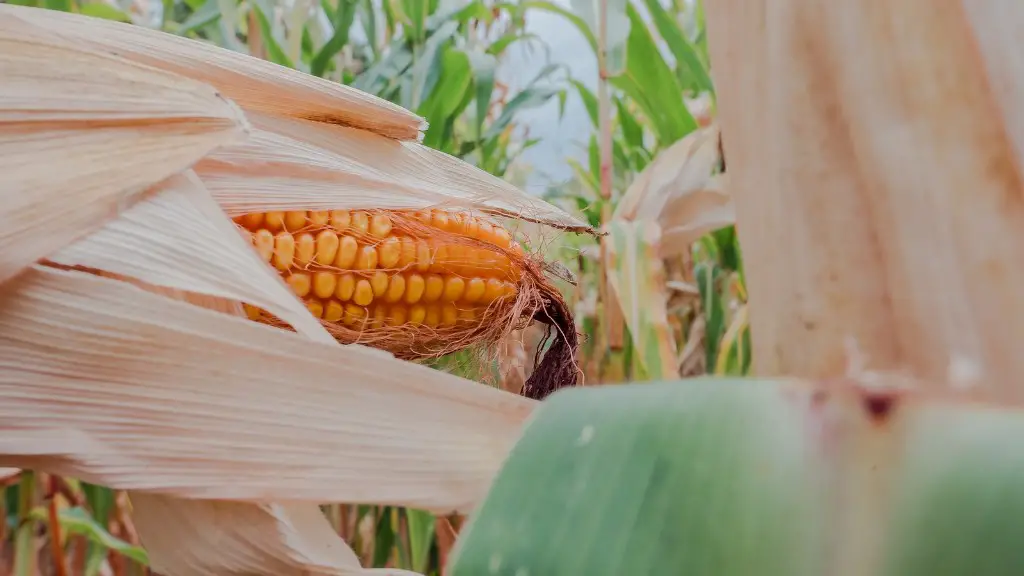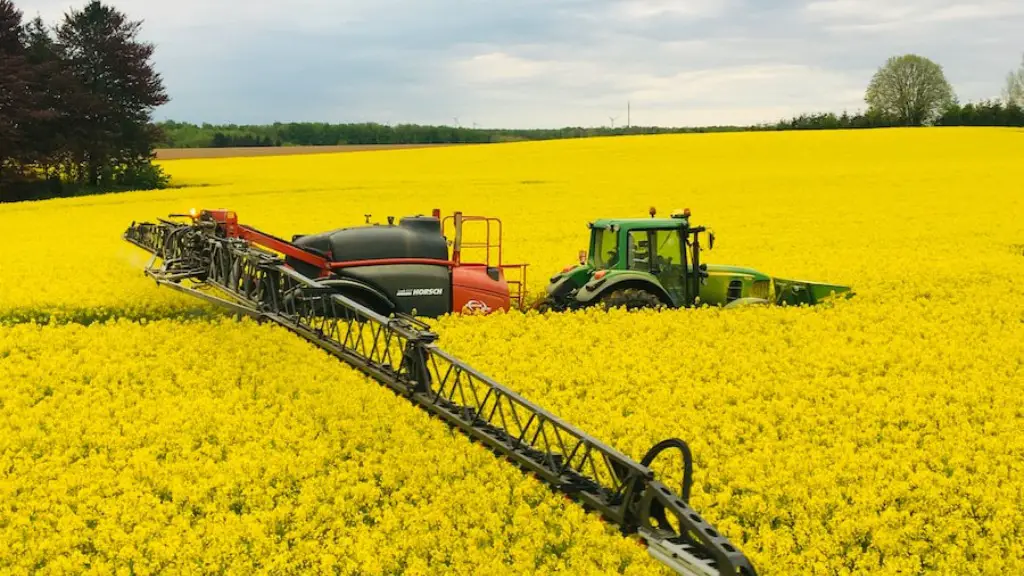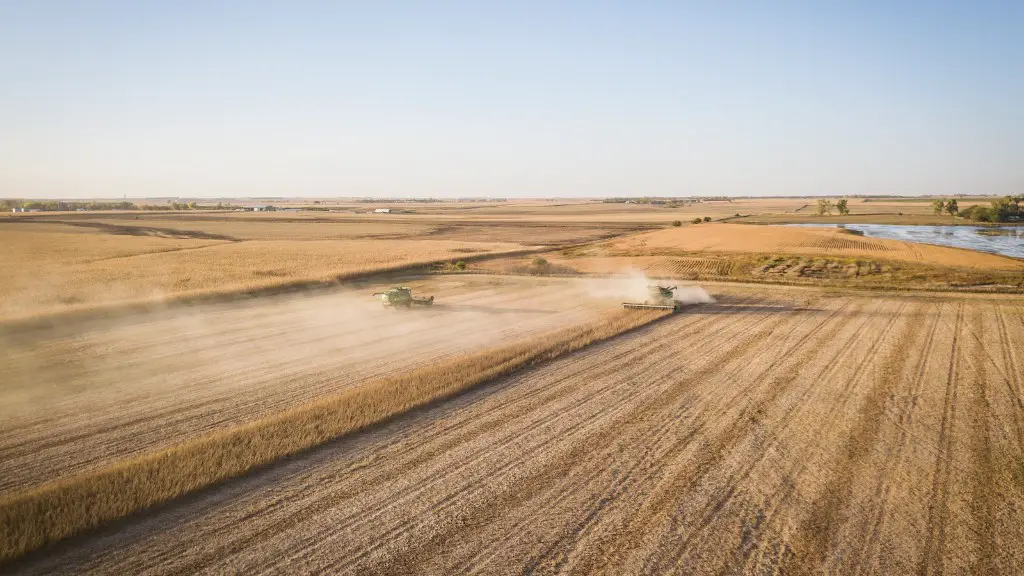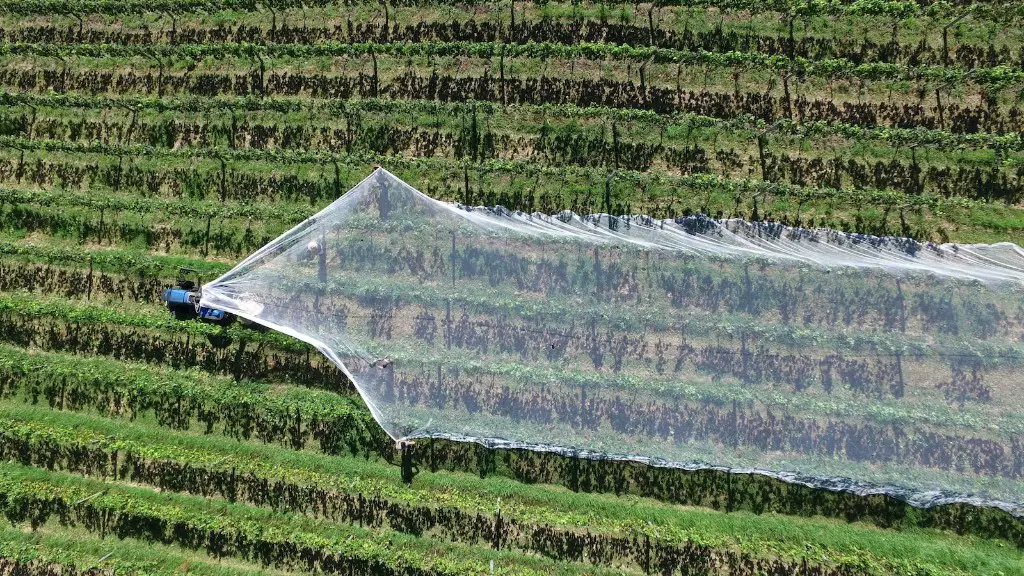In the United States, agriculture is responsible for 80% of the nation’s water use, 50% of its land use, and 10% of its energy use. The impact of agriculture on the environment is complex. Agriculture both benefits the environment by sequestering carbon and providing habitat, and harms the environment by polluting water and contributing to climate change.
Agriculture has a significant impact on the environment. Farming practices can lead to soil erosion, water contamination, and air pollution. Agricultural production also contributes to climate change by emitting greenhouse gases.
What are five environmental effects of agriculture?
Agriculture has a significant impact on the environment. The five main environmental effects of agriculture are soil fertility loss, eutrophication of water bodies, deforestation, climate change and pesticide pollution.
Soil fertility is essential for agriculture and it is being lost at an alarming rate due to intensive farming practices. This is a major problem as it leads to reduced crop yields and increased reliance on chemical fertilizers.
Eutrophication of water bodies is another major environmental effect of agriculture. This occurs when there is an excess of nutrients in the water, which can lead to algal blooms and fish kills.
Deforestation is another major environmental effect of agriculture. This is often caused by the clearing of land for crops or livestock. Deforestation can lead to soil erosion, loss of biodiversity and climate change.
Climate change is another major environmental effect of agriculture. Agriculture is a major contributor to greenhouse gas emissions, which are a major driver of climate change.
Pesticide pollution is another major environmental effect of agriculture. Pesticides can contaminate soil and water, and can also be harmful to human health.
While large-scale conventional farming has been successful in yielding high production levels, it has also contributed to climate change, pollution, and depletion of soil fertility. This system of farming relies heavily on fossil fuels, pesticides, antibiotics, and synthetic fertilizers, which can have negative effects on the environment. In order to create a more sustainable farming system, it is important to reduce our reliance on these harmful chemicals and move towards more environmentally-friendly practices.
What is a negative impact on agriculture
Bad management practices in agriculture can have a huge impact on water quality. Poorly managed animal feeding operations, overgrazing, plowing, and fertilizer can all lead to water pollution. Pesticides can also pollute water if they are used improperly, excessively, or at the wrong time. pollutants from agriculture can be found in lakes, rivers, wetlands, estuaries, and groundwater.
Agriculture is important for a variety of reasons. It is the main source of raw materials for many industries, it is important to international trade, it plays a big role in a nation’s revenue, it provides employment, it is crucial to a country’s development, and it can help heal the environment. Additionally, agriculture is often closely linked with war and conflict.
What are the 5 biggest environmental problems caused by food and agriculture?
There are a number of environmental problems that can arise from food production, including water use and water pollution, greenhouse gas emissions, environmental contaminants and pollutants, depletion of natural resources, and waste. While some of these problems can be addressed through more efficient and sustainable production practices, others will require changes in consumer behavior. For example, reducing water use and water pollution from food production will require more efficient irrigation practices and better management of animal waste. Reducing greenhouse gas emissions will require a shift to more sustainable agricultural practices and a reduction in meat consumption. And reducing environmental contaminants and pollutants will require better regulation of pesticides and chemicals used in food production.
There are two large problems facing agriculture in the modern world. The loss of agricultural land through erosion and manmade factors is one of them. The other is the increasing lack of diversity in crops.
Loss of agricultural land is a serious problem because it results in less land available to grow crops. This can lead to food shortages and higher prices for food.
The lack of diversity in crops is also a problem because it increases the risk of crops being wiped out by disease or pests. This can lead to hunger and starvation.
How does agricultural activities destroy the environment?
The impact of slash and burn on the environment includes pollution of water bodies due to toxic pesticides and insecticides, erosion, and loss of forest soil and forest watershed. Additionally, slash and burn can cause carbon sequestration, energy cycle, surface water quantity regulation, and other ecological effects.
There are a few major problems in agriculture that are causing losses in agricultural land and decreased crop and livestock production. With the world’s population continuing to grow, the demand for food is also increasing. This puts a strain on farmers to keep up with the demand, which can lead to problems like soil erosion and depletion of water resources. In addition, the loss of biodiversity is also a major problem, as it leads to a loss of genetic diversity and crop resilience.
Why is agriculture a problem
There are increasing pressures from climate change, soil erosion and biodiversity loss and from consumers’ changing tastes in food and concerns about how it is produced. And the natural world that farming works with – plants, pests and diseases – continue to pose their own challenges.
Agriculture has the potential to positively impact the environment in a number of ways. For instance, crops and soils can trap greenhouse gases, mitigating their impact on the atmosphere. Additionally, certain farming practices can help to reduce flood risks.
What are positive impacts of agriculture?
Agriculture plays a vital role in society by providing food, habitat, and jobs. It also provides raw materials for food and other products, and helps to build strong economies through trade. Agriculture has a positive impact on society and the economy, and it is important to support the industry.
Farming is good for your health because it is challenging and stimulating work. It provides a source of income in rural areas and helps develop younger generations. Farming can help the environment thrive.
What is the most important benefit of agriculture
Other industries rely heavily on agriculture for their raw materials. Without a strong agricultural industry, many other industries would not be able to survive. This is because agricultural products serve as raw materials for the production of many items. Without a reliable source of raw materials, these industries would not be able to function properly.
On the other hand, agriculture is one of the most vulnerable economic sectors to climate change, as extreme weather events – such as floods, droughts and heat waves – can destroy crops, damage infrastructure and disrupt supply chains. In addition, climate change is expected to reduce agricultural productivity and impact food security.
What are the impacts of agriculture to the society?
The result of increasing pressure on land and water resources is often land degradation. This can include soil erosion and salinization. Agriculture is also associated with greenhouse gas emissions.
Farmers have an increased prevalence of many acute and chronic health conditions including cardiovascular and respiratory disease, arthritis, skin cancer, hearing loss, and amputations Other health outcomes have been little studied in the agricultural workplace, such as stress and adverse reproductive outcomes.
Other health outcomes have been little studied in the agricultural workplace, such as stress and adverse reproductive outcomes.
Final Words
The impact of agriculture on the environment is both significant and complex. Agricultural production accounts for a significant portion of global greenhouse gas emissions, while also playing a role in deforestation, water pollution and soil erosion. Agriculture can also have a positive impact on the environment, through initiatives such as sustainable agriculture and agroforestry.
The impact of agriculture on the environment is both positive and negative. On the positive side, agriculture provides us with the food we need to survive. On the negative side, agriculture can lead to soil erosion, water pollution, and deforestation.





